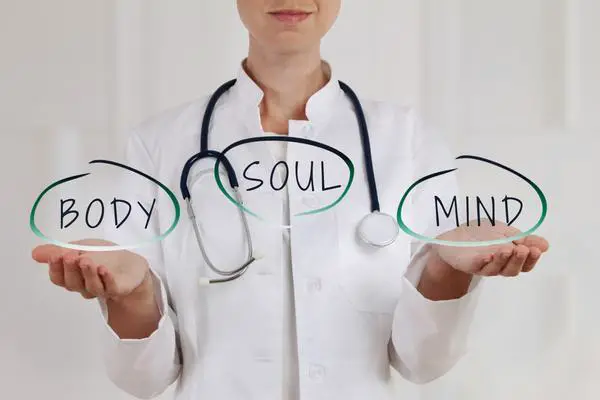
How Holistic Medicine can Positively Impact Elderly Care
As we move deeper into a future in which people are living longer lives as a result of better medicine, a greater part of the population is becoming made up be elderly adults. In fact, it’s estimated that by the year 2050, 95 million Americans will be over the age of sixty-five.
While medicine has helped to increase lifespans, elderly adults are beginning to experience chronic illnesses in greater frequencies. As such, finding ways to beneficially impact senior health care can help improve the quality of life for millions of people.
Holistic medicine has presented itself as a viable alternative to traditional medicine. When utilized in tandem with traditional medicine it can result in a more enjoyable experience of life for elderly adults. Understanding how holistic medicine can do this can provide one with a more nuanced understanding of how the life of elderly adults can be improved in the coming years.
What Is Holistic Medicine?
Before understanding how holistic medicine can improve elderly care, it’s important to understand what holistic medicine is. While definitions can vary, holistic medicine, sometimes referred to as alternative medicine, is typically defined as non-traditional forms of medicine that aim to achieve wellness.
Holistic medicine typically takes things such as the mind and emotions into account rather just the body. As such, holistic medicine aims to heal a person as a whole rather than just treat specific parts of the body. In addition, the field often draws upon herbal and folk remedies to treat various ailments.
While many people find the practice of holistic medicine beneficial, some are critical of the field. Critics feel that holistic medicine is not a viable form of medicine since it’s effects are not typically measurable in a biological sense. While this may be true in some cases, it doesn’t change the fact that many individuals report positive subjective experiences when receiving holistic treatments.
This being the case, it makes sense that holistic medicine may be able to improve the quality of life for elderly adults living with chronic illnesses.
Healthy Emotions
Holistic medicine places a greater emphasis on the importance of emotions in health than traditional medicine. For elderly adults, especially those suffering from chronic illness, an improvement in emotional states could likely have an overwhelmingly positive impact upon one’s quality of life.
Oftentimes, higher rates of social activities and relationships are linked to more positive emotions and a more optimistic outlook on life. This being the case, pairing traditional medicine with routine social interactions could help elderly adults feel more positively about their lives.
While some elderly adults have social interactions with others at places such as religious services, meetings with friends, and family events, others do not possess this social capital. As the rate of elderly adults over the age of sixty-five increases, so too will the amount of elderly adults with lives largely devoid of meaningful social interactions.
In addition, though adult protective services do their best to make sure that elderly adults aren’t being mistreated, the chances of them being notified of negative situations is much less when elderly adults are spending the majority of their time alone.
Holistic medicine has the power to ensure that more adults don’t have to suffer the negative consequences of loneliness and isolation. As such, alternative medicine in the form of encouraging regular social interactions has the power to dramatically improve the way elderly adults experience their lives and improve their levels of happiness.
Recent years have seen increased interest in holistic approaches to managing chronic illnesses among elderly adults, with some individuals considering natural and alternative therapies as part of their care. In certain states, medical cannabis is gaining acceptance for symptom relief in seniors experiencing chronic pain or other qualifying health conditions. For those interested in exploring this option, it’s now possible to conveniently connect online with doctors for medical marijuana card evaluations who can guide patients through the process and determine eligibility.
While holistic medicine may not be as effective as traditional medicine in treating severe illnesses at a biological level, it presents itself as a far more effective means of improving the emotional states of elderly adults.
Sometimes the Practice Is More Effective Than Substances
Within the field of holistic medicine, there are a wide array of beliefs around the benefits of certain herbal medicines. While many feel very strongly that these medicines are effective, studies have been inconclusive in measuring the positive biological effects of these substances. While these medicines may not actually be effective in some scenarios, in some ways, it doesn’t matter.
Those who believe that these medicines help them experience a greater sense of security and greater instances of believing that they have control over their own health outcomes.
These attitudes can be extremely beneficial for elderly adults as it gives them more motivation to engage in healthy habits to promote good health. While it may seem odd, taking supplements — even those which don’t have an actual effect — can actually help provide elderly adults with a sense of security that decreases their levels of stress and increases instances of happiness.
Holistic Medicine Can Improve Future Care
Though it hasn’t yet been widely accepted by traditional medicine, holistic medicine has the power to improve the quality of life of the growing elderly population. As chronic illnesses become more common among elderly adults, holistic medicine offers itself as a way of improving the emotional states of the affected individuals.
As the world shifts into one where people live to more advanced ages, alternative forms of care will likely become a more accepted form of treatment for the aging population.